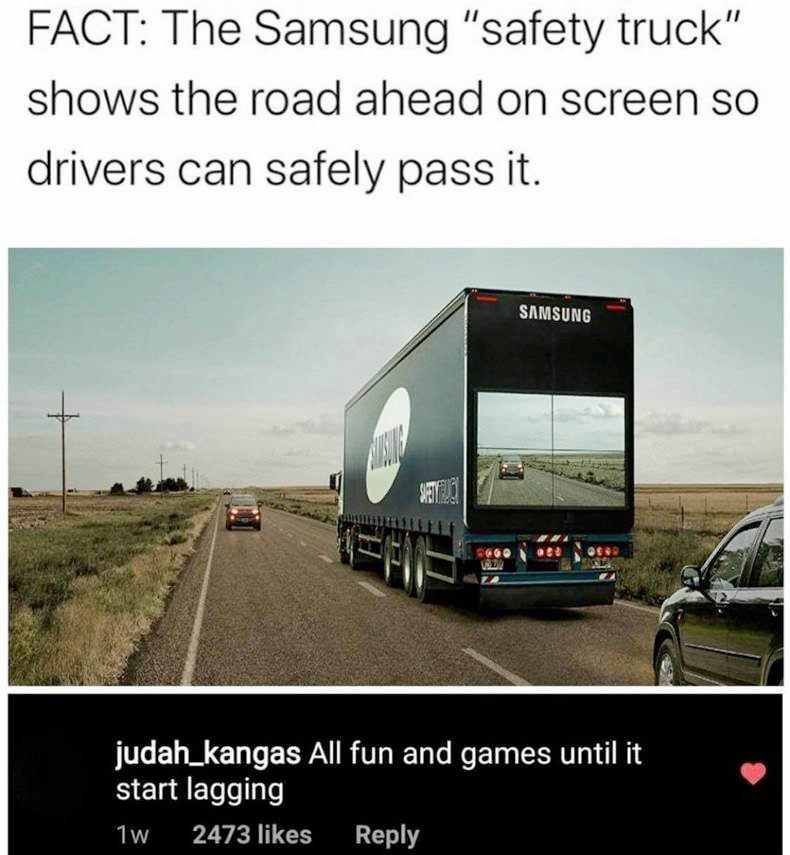1. Good Monday Morning
It’s May 24th. Here is your long weekend alert for next week. There will be no Spotlight next Monday. We’ll be back on June 7th.
Today’s Spotlight is 1,223 words — about a 4 minute read.
2. News To Know Now
Quoted: “But I want to be careful to say we are not in the business of what should or shouldn’t circulate. We don’t think it’s our role to adjudicate information versus misinformation.” — Prabhakar Raghavan, Senior Vice President at Google to Stephen Levy
a) Video game players are helping scientists learn more about COVID-19. More than 300,000 gamers have completed a total of 330 years worth of research by playing a portion of the game that presents real scientific data. EVE Online players get points for a minigame by drawing polygons around clusters that help researchers give human input to algorithms. (IGN)
b) BuzzFeed News found President Joe Biden’s Venmo account after less than 10 minutes of looking for it. The company also founda network of his private social connections. The account has been further locked down since BuzzFeed easily uncovered other accounts linked to the president’s family and senior White House officials. This is what we mean when we suggest that social engineering can be done simply from clues people post in social media games.
c) Lots of product news surfaced during Google’s annual I/O event last week, but the gee-whiz factor was biggest around the company’s “hyper-realistic” 3D video call portal. There is no more staring at a camera and glancing at the screen. Instead, you’ll interact as if the caller was on the other side of a window. Here’s the video.
3. Search Engine News
Google’s search engine news included an update about its natural language processing for search. As we often explain to people, typing a query for “rice” might mean that you’re interested in the food, the university, the politician, or any of its other meanings. Likewise, a search for Paris Hilton may yield information about the hotel or the heiress.
Last week the company announced a new model called MUM that it says is “1,000 times more powerful” than its current system and can pull information from multiple languages into the same results. Remember that we’ve been telling you for several months about three Google AI ethicists who have been fired or unexpectedly resigned over controversies regarding these models.
Google is also allowing website managers to use new codes that help it define what is displayed in a video clip shown on the website — and allow that clip to be played directly on the Google results page without someone visiting the website.
4. In The Spotlight — Driver Privacy and Surveillance
In the age of tech-driven surveillance, there is a growing gap between what people expect and what they endure. Amazon monitors delivery drivers with GPS devices that track their every move. Insurance companies monitor your driving habits to determine rates and coverage eligibility, and in-car cameras focus on your behavior behind the wheel.
Now Congress is considering legislation that would require driver-monitoring tech in every car, with the aim of preventing accidents and saving lives. But would this new technology be a violation of personal driver privacy? And how do we balance that surveillance-privacy gap?
Delivery driver complaints about Amazon have received most of the public’s attention about this issue because the retail tech giant always steals the oxygen from a room. There’s good reason to agree with drivers that the company’s AI-powered cameras and Mentor app is a form of digital surveillance that workers shouldn’t be subjected to.
But Amazon isn’t the only company to have a say in how your personal information is used. Insurance companies monitor driver behavior and rates, too. So does law enforcement with traffic stop cameras, which can capture license plate numbers on thousands of cars every day.
My home state requires vehicles have their emissions checked in some parts of the state. Yet when I pass through a tollbooth, emissions collectors there can send me an automatic waiver of the test. I still have to pay because no state is good at reducing revenue opportunities, but that’s just a simple example of how driver surveillance can create new opportunities for data collection.
Auto safety improvement and technology continue to fuel a decrease in collision fatalities. But because driver behavior is so closely monitored by camera and other means of data collection, when it comes to car accidents, drivers understand that their vehicle’s every move will be scrutinized for fault or liability.
The National Highway Traffic Safety Administration says that distracted driving caused 3,142 deaths in 2019. Monitoring devices that help understand issues like this are important, but knowing who can access them and for what purposes remains problematic.
We’re all happy about the improved safety, but may not want to sacrifice driver privacy or at least may want to decide how much driver privacy is sacrificed. Government and workplace mandates about surveillance and driver privacy are something we don’t yet know how to successfully manage.
5. Debunked — Choose Your Vaccine
Snopes has in-depth look at a meme making the rounds that cherry picks negative data about pharmaceutical companies that might make it incorrectly seem that COVID-19 vaccines are unsafe. It’s a sophisticated way to try to get past fact checkers. The facts are accurate, but the entire thing is a big logical fallacy that Snopes calls misleading.
6. Following Up — 60 Minutes Misses
Those Google AI ethicists should have been in the news even more last week. CBS’ 60 Minutes ran a long piece about racial bias in facial recognition. The segment’s producers showed interviews with four men, but didn’t interview the three Black women who did the original work on the topic. And yes, one was part of that now famous Google AI ethics team.
7. Protip — Just Press Slash for Google
Great keyboard shortcuts are the best. New in 2021 is using the slash key (probably under the question mark key on your keyboard) to return to the search query box when using Google. No scrolling necessary. How cool is that?
Screening Room – Apple’s Take on Privacy
9. Science Fiction World — Drones Over Europe
I’ve been fascinated while watching Manna Aero’s drone delivery tests going on in Ireland. There is news this weekend that Irish regulators have signed off on the first light unmanned aircraft operator certificate throughout Europe.
CEO Bobby Healey told Morning Brew that the company was operating in a town with 3,000 homes. Consumers pay $1-$6 per for fast delivery of groceries, food, and even books.
10. Coffee Break — Breathtaking Pictures
As more Americans begin traveling during the upcoming Memorial Day gateway to summer, here are The Atlantic’s winners for Best International Landscape Photos awarded just before the pandemic.
11. Sign of the Times





